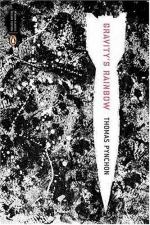|
This section contains 1,231 words (approx. 5 pages at 300 words per page) |

|
In its use of a symbolic and psychic geography, Gravity's Rainbow recalls romantic novels in which a region of adventure and magical possibility exists apart from ordinary, civilized "reality."… Thomas Pynchon invokes [a] long tradition of symbolic and psychic geography in his epigraph to Part 3 ("In the Zone") of Gravity's Rainbow with a characteristic allusion to popular culture: "Toto, I have a feeling we're not in Kansas anymore….—Dorothy, arriving in Oz." (p. 225)
Pynchon's psychic wilderness, the Zone, is a place of purgation the fires of which can transform being into something new and magical, not merely "real," but legendary. (p. 226)
The analogue of Kansas in Gravity's Rainbow is London in the winter of 1944 as the close of World War II approaches, the setting of Part 1. London is the central base of the Allied bureaucracy, "where all the paperwork's done, the contracts signed, the days numbered."… There, people...
|
This section contains 1,231 words (approx. 5 pages at 300 words per page) |

|


